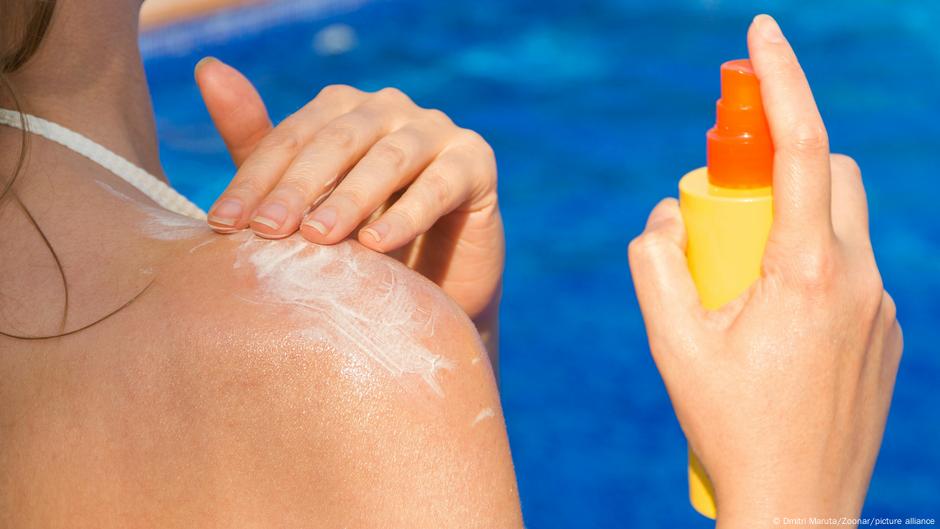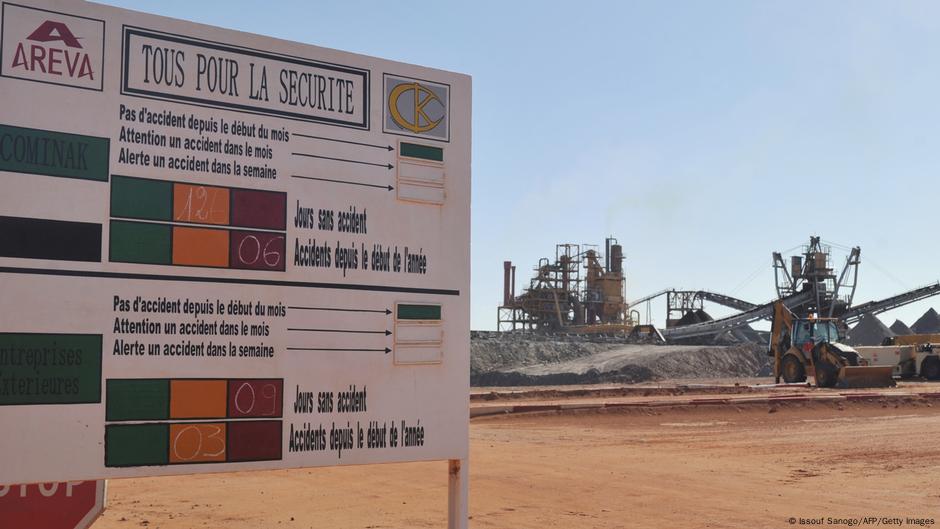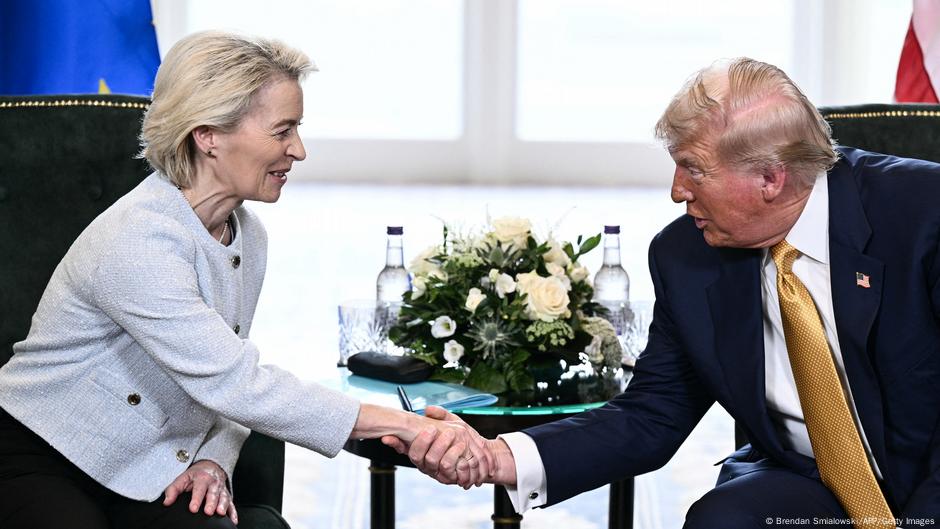As well as avoiding direct sunlight and wearing protective clothing such as hats, long-sleeved shirts and pants, effective sunscreen products have been available for years. But as genuine concerns about product safety mix with myths and falsehoods on social media and elsewhere online, some people may move away from these cancer-preventing products.
“The most important thing that I always want to emphasize in any of the research I’m doing is the importance of using [sunscreen],” said Richard Blackburn, a materials scientist at the University of Leeds and Keracol Limited, UK, who researches and develops new sunscreens and skin products.
“We should be worried about skin, skin damage, DNA damage, skin aging, so the use of a sunscreen, if you’re going to be out, is really, really important.”
Ultraviolet light damages skin
Ultraviolet (UV) light is emitted by the sun, penetrates Earth’s atmosphere and reaches the surface. And it’s dangerous.
“UV damages all living things,” said Antony Young, a photobiologist at Kings College London.
UV is invisible but the damage it causes to humans when it’s absorbed by the skin is obvious. Even a short-term exposure to sunlight — sometimes less than half an hour — can cause sunburn.
There are two types of UV light: UVA and UVB.
UVA is a longer wavelength form of ultraviolet and reaches deep layers of the skin. UVB usually penetrates the outer skin layers, such as the epidermis, and is the main cause of sunburn.
Even people with darker skin tones need to be careful of UV. While natural pigmentation can provide a temporary guard against ultraviolet light, skin is skin, and damage can still occur after extensive exposure.
While high-SPF sunscreens filter out most UV light, health advocates recommend covering as much of the body as possible when exposed to direct sunImage: Jordi Boixareu/ZUMA Wire/IMAGO
There are two types of sunscreens
In the 20th century, sunscreens were developed to reduce the harm caused by UV. They contain many ingredients but are generally divided into two categories based on their active properties.
One of these are “chemical” sunscreens. But scientists are trying to move away from that description because, after all, everything on our planet is made of chemicals.
The term they prefer is “organic sunscreen” because they contain carbon-based active ingredients. These molecules absorb and diminish UV rays when they hit the skin, helping to prevent sunburn.
The other category is sometimes called “physical” or “natural” sunscreens. The active ingredients in these are chemicals too — but they aren’t carbon-based. Instead, these use titanium or zinc oxide particles to provide a physical filter.
Both sunscreens absorb and block UV from penetrating and damaging skin. The radiation is released as heat.
While no sunscreen filters out 100% of UV, they are vital at blocking out an overwhelming amount of it. Sunscreens are rated using protective factor labels, abbreviated to SPF or UPF, indicating how much UV is filtered out.
SPF15, for example, filters away 93% of UVB radiation; SPF30 filters 97% and SPF50 filters 98%.
Skin cancer and the dangers of the sun
To view this video please enable JavaScript, and consider upgrading to a web browser that supports HTML5 video
Sunscreen having a moment in the spotlight
Health authorities are increasingly vocal about the importance of using sunscreen, and general sun protection, to prevent skin damage and reduce skin cancer rates.
But these messages are also competing with claims, including ones circulated on social media, that sunscreen can do more harm than good. Some of these are falsehoods misrepresenting data.
There are, however, also reasonable concerns about the safety profile of some chemicals that have been used in sunscreen for years. While these have generally been considered safe, some long-approved substances like oxybenzone, avobenzone and octinoxate have been detected in the bloodstream, and may break down into toxic compounds.
The question scientists — and health regulators — are asking is, are these toxins enough to pose a danger?
Vezi toate știrile de pe cremele protecție solară
“What matters is the dose,” said Young. “This is also true with concerns about sunscreen pollution into the oceans. The trouble is a lot of the toxicity studies are done with doses that are not going to be achieved, or [are] very difficult to achieve.”
Among other recommendations from dermatologists and researchers are for consumers to pay attention to expiry dates, storage conditions and to avoid mixing different sunscreens at the same time. That includes cosmetics that have an SPF rating.
Blackburn’s research has shown applying two different types of sunscreen products can diminish their protective benefits.
“We found it actually can reverse the whole process by combining those [different sunscreens] together, and that’s very counterintuitive,” he said. “You would almost think you’re layering and layering and you get better [protection], It’s not the case.”
Do-it-yourself sunscreens are risky
Then there’s so-called natural sunscreens that swap out certain lab-made molecules for naturally derived ingredients.
Rendered beef fat, commonly called tallow, has been marketed as one such product, while some homemade recipes and online blogs point to naturally derived oils and even certain supplements to provide protection.
But the SPF of these ingredients is usually negligible. Products marketed as “natural” will usually contain chemicals like zinc or titanium oxide to provide adequate protection.
Young warns against do-it-yourself sunscreens.
“The thing about these homemade efforts is that you can’t test them. Formulating a sunscreen is quite a technically tricky job to get it both cosmetically appealing, stable and also protective,” he said.
(F)actually healthy: Sun protection
To view this video please enable JavaScript, and consider upgrading to a web browser that supports HTML5 video
Future of sunscreen could be plant-based
While most sunscreen chemicals, whether skin-absorbed carbon compounds or physical protectors like zinc are the current gold standard for SPF, scientists are finding new chemicals in nature.
Like many pharmaceuticals, chemical compounds evolved by plants, fungi and other animals could be harnessed to provide health benefits.
“There are natural chemicals that have the potential to be protective,” said Young. “And plants in particular produce chemicals to protect their DNA.”
Labs like those run by Blackburn are trying to identify, isolate and produce such chemical compounds for use in sunscreens. It could reduce the reliance on lab synthesized chemicals in future sunscreens, though in places like the US, these would still need regulatory approval.
“Everything is chemistry,” said Blackburn. “If we can understand from a chemical level and a mechanistic perspective what’s working, we can actually improve [sunscreen], look to… plants that can provide the same function.”
Edited by: Carla Bleiker
Matthew Ward Agius Journalist reporting on politics, health, history, science, climate and environment.Send us your feedback
Sursa: DW









